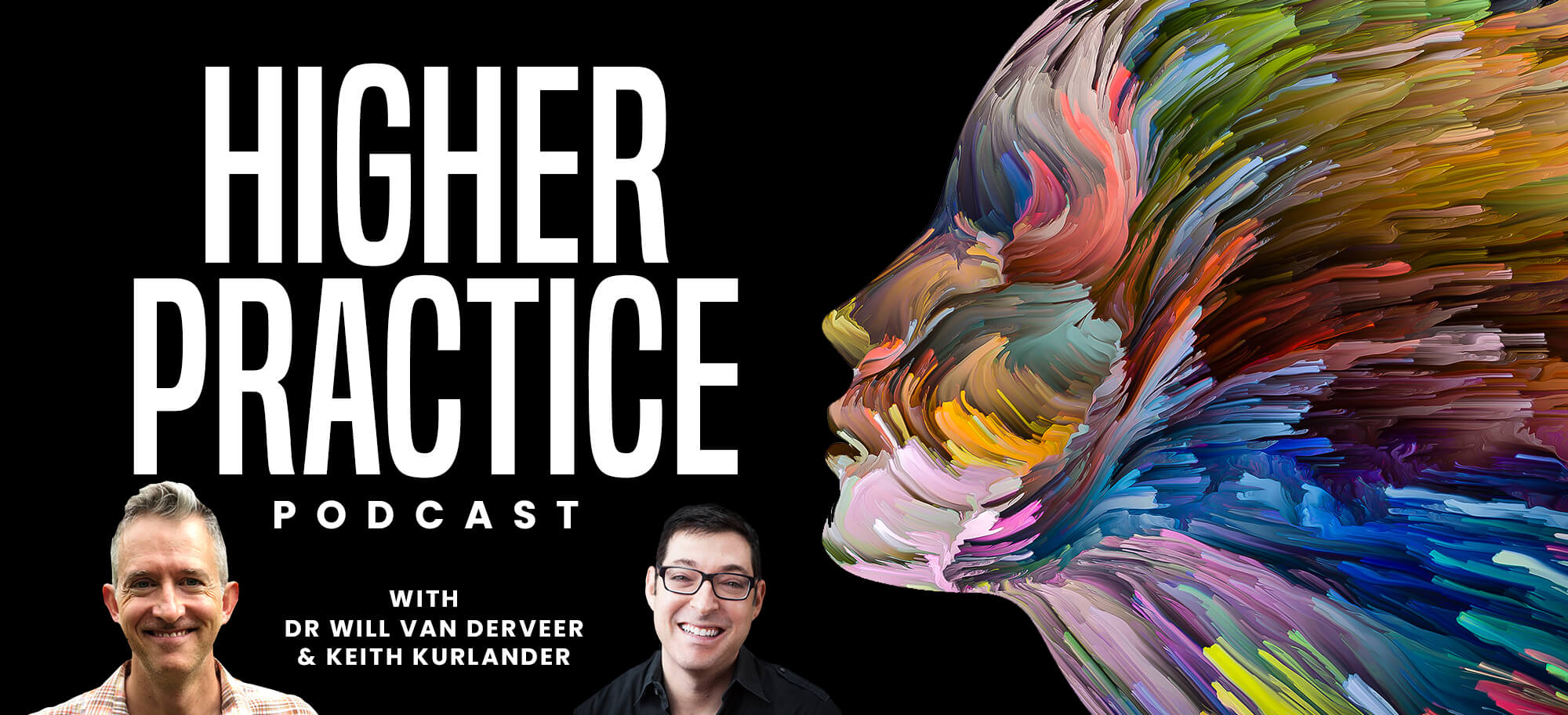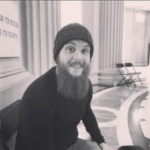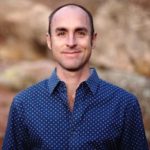Episode 16

Mark Roberts, CEO
If you are thinking that at some point in the future you might want to start a private practice or you are currently in one and you want to get more clients, this episode is for you.
As business owners, we always want to be thinking about ways we can automate our marketing process so that you’re not spending more hours marketing than you are delivering direct services to clients.
But as a therapist it’s also essential that our marketing comes from integrity and the values that got you into the profession in the first place.
Many therapists will say I didn’t go into this profession for the money, and it may be true that money was not the highest value of why you chose this profession. Typically, that doesn’t turn out well for anyone.
However, money is essential in order to thrive in the profession and so you can feel vital when you are working with your clients. If you are in a place of scarcity in your own life, it’s difficult to help your clients out of the place of scarcity that they are often experiencing.
There are a number of avenues online to explore for paid advertising for therapists such as google adwords, directory listings, and online magazines and newspapers. Facebook Ads done correctly is one of the most powerful resources available.
Our guest, Mark Roberts, is going to cover the essentials of Facebook advertising for therapists. He will discuss how to advertise private practices with integrity, Facebook ads 101, using local campaigns designated by Facebook, the term traffic temperature and why it’s so important, and utilizing metrics in Facebook to see if your ads are working and getting you new clients.
Episode 15

Annie Brook, MA, PhD
Take a moment to think about all of your healthy habits that are in your life. Do you brush your teeth regularly, make your bed on a daily basis, keep the house clean, get to work on time, do your laundry, eat healthy food, and exercise on a regular basis?
What about the habits that cause problems in your life? Do you drink too much? Do you find yourself eating too much sugar? Do you procrastinate important tasks at work? Do you avoid challenging conversations? Are you overworking yourself and constantly feeling like you are about to burn out?
How far back in your own life do you think these patterns developed? Was it time in your adulthood, maybe adolescent years, early childhood or even as a toddler?
Developmental psychology usually looks into pattern development from ages 3 and up with some patterns developing during infancy. But what if it’s possible that many of these patterns both unhealthy and healthy started at birth or even prenatally?
Prenatal psychology examines human behavior in a very different light than how most people frame their history and how it impacts who they are. From a prenatal psychology perspective, the development in the womb and the birth process can have a huge impact on who we are as adults and the behaviors that we default to.
Our guest, Dr. Annie Brook will explore the cues to look out for when there is shock present in the nervous system of a young child that occurred during a very early developmental process, how to recognize compensations in adults for challenges that happened during prenatal development, birth trauma and how to work with it, a case example of a child who worked through a disruptive birth experience, and why pre and perinatal psychology is essential to understand as a clinician.
Episode 14

Ellen Boeder, MA, LPC
In many parts of western civilization, there’s so much emphasis placed on career, and, increasingly, mother’s are often troubled by balancing the roles of being a parent and a mother. And there’s also so many cultural myths and stigmas that mothers face today.
Last week we explored the attachment and bonding process between parents and infants and how critical that time period is for healthy childhood development. Today is all about what mom’s go through in those first few years of having a new child.
We have a guest today who’s going to break down the modern myths of motherhood, what needs to happen with mom’s in a therapy setting, the challenges and triumphs that mom’s are facing everyday, and how to recognize a mom that’s well resourced in all the ways that count.
Our guest, Ellen Boeder, discusses her personal story of motherhood, how she overcame the challenges of conflicting roles in society, how therapists can support moms, the signs and signals when a mom is healthy and well-resourced, and, most importantly, what to look out for when a mom needs extra support in her life.
Although this episode is really geared toward supporting women who are transitioning into motherhood or in the early years of parenting, this episode also applies to any parent or anyone who is thinking of having a child. And this episode isn’t only about moms. Ellen has a message for fathers who want to learn how to support moms, as well as some thoughts for anyone considering becoming a parent.
Episode 13

Stephanie Dueger, MA, PhD
How much time in your life have you spent thinking about your early childhood? From a neuroscience perspective we actually can’t remember that many specific details before age seven, meaning the cognitive narrative is more amorphous from the very early years in our development.
This leaves many unanswered questions about the mystery of our first few years in life. But those first years of development are extremely relevant from an attachment perspective for future relationships, resiliency, mental health and the ability to reach your potential.
In this episode, Dr. Stephanie Dueger is going to talk about what it looks like to confront the beginning of the attachment process when it’s occurring in infants and toddlers, rather than looking at the regressive psychotherapies once the imprints have already been established for decades.
This episode will open up an new look into the intricacies of attachment and bonding during infancy, and why it’s so important to have a thorough understanding of that process. You’re going to get to learn about what psychotherapy looks like with a child in the first few years of their life and how to help repair any attachment issues that can occur at that stage. You’ll also gain an understanding on how an early-childhood therapist removes themselves enough to promote healthy bonding between the parent and child.
Episode 12

Nataraja Kallio, MA
Whether you live in a rural or urban area, it’s likely you have a yoga studio or yoga teacher in your town. In the United States alone, nearly 20 million people are practicing yoga in some form or another, which begs the question, “what’s so compelling about yoga when it comes to living life in a well-balanced way?”
Many people are familiar with the physical benefits yoga has to offer the practitioner. We can get in better shape, get healthier and have more energy. And there’s also the spiritual practice of yoga. Throughout pockets of the world, people utilize yoga as a spiritual system with different goals in mind.
In this episode, Nataraja Kallio, the Director of the Yoga Studies program at Naropa University, is going to take you through a brief history of yoga, what it was in ancient times, and it’s overlap to what occurs in a psychotherapeutic setting.
Where the conversation gets VERY interesting is in his discussion about how our memories are stored in our bodies from a yogic perspective and how doing yoga postures works with those memories. He will also cover a general understanding of emotion and the ways in which many yoga practices work to keep a person in balance. And make sure to stay to the end where he talks about the mysterious kundalini energy that you may have heard about and its relationship to psychiatric conditions.
Episode 11

Sujatha Reddy, MS, LPC, BAMS
Civilized life has many amazing benefits. We can create great structures and share information with each other. But as we all know it also has its complications. Some of the biggest issues in civilized societies are interpersonal relationships, our physical health and how we stay well in our own mind. Mental illness is actually quite a serious issue across the world in developed and developing countries.
Because of these types of issues that come along with civilization, people throughout time have been using different systems to address the health of the mind and physical body.
Ayurveda is one of the oldest systems of medicine originating in India roughly 5,000 years ago when sages were the predominant healers in society. A little-known fact is that long before western psychology systems were developed, Ayurveda had it’s own psychological framework that’s vast in both theory and clinical applications.
In this episode, you’re going to learn about the principles of Ayurveda, how it translates into a modern psychological system, an analysis of the mind from this perspective, and a lot of other really interesting information.
Our guest today, Sujatha Reddy, studied Ayurveda in India and became a Vaidya in 1988 with a degree from Bangalore University. She moved to the United States nearly 30 years ago and has been practicing Ayurveda since. She specializes in Ayurvedic psychology and its application for mental health. She earned her Master’s Degree in Mental Health Counseling from the University of Dayton and is also a Health and Wellness Coach.
Episode 10

Guili Zavaschi, MA, LPC
Ayahuasca is a traditional amazonian plant medicine that contains the hallucinogenic substance DMT. You may have heard of it because Ayahuasca has become quite popular among spiritual seekers in recent years. There have been many articles and documentaries about it, and often the news coverage exploits the problems people have experienced with it.
However, this traditional medicine is also used in certain areas of the world as a way to help addicts in recovery and the results are quite remarkable.
In this episode, we have a special guest, Guili Zavaschi, a former therapist at the Takawasi Rehab Center in Peru. Takawasi is one of the few addiction centers in the world legally using Ayahuasca for the treatment and recovery from devastating addictions. Guili shares his first-hand experience as a therapist working with patients at Takawasi, the amazing process he witnessed patients go through, and an exploration into Ayahuasca’s miracles and potential dangers.
Episode 09

Katie Asmus, MA, LPC
We live in a fast-paced environment. Very few people are immune to the distracting side of technology that can dismember our connection to the natural world. But nature is forgiving in many ways and waiting for us to reconnect with her whenever we choose.
There’s something beautiful about the natural world. It doesn’t seem to hold grudges like people even if we do things like hurt the environment. Sure nature seeks balance and will course correct itself, but it still seems to offer us an invitation into connection on every hike we take, whenever we smell a bouquet of flowers on our table, and hear birds chirping out of the window.
Our connection with nature is paramount to feeling connected to something beyond the self. Without this connection we can feel isolated, withdrawn and even empty. So, this brings into question a very important topic that we are going to discuss today. What role does nature have in psychotherapy?
In this episode, you’re going to hear about wilderness therapy and nature-based therapy and the ways they differ. One of the most compelling topics in this interview is how you can use nature-based ritual and ceremony to foster healing in your clients so that you are not always relying on yourself as the primary healer.
Our guest, Katie Asmus is a master teacher and psychotherapist specializing in the modalities of wilderness and somatic therapies with a focus on ceremony and ritual, finding one’s purpose in life and somatic soul-based trauma work. She has been incorporating wilderness, adventure and relationship with the natural world into her professional and personal work for over 25 years.






















